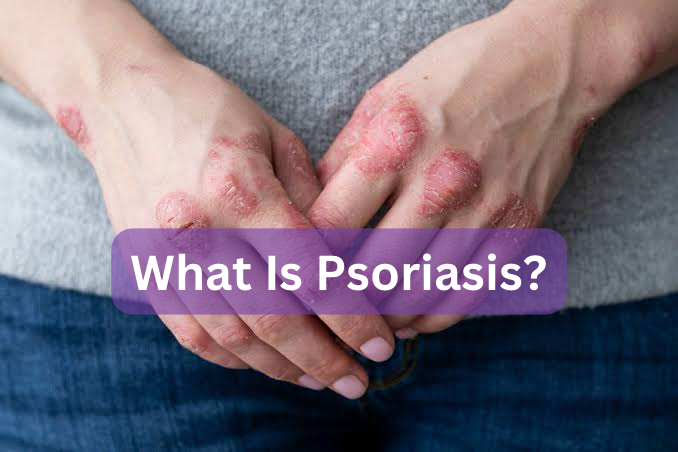Psoriasis; Symptoms And Causes

Psoriasis is a complex chronic autoimmune disease that affects the skin, often resulting in the formation of red, inflamed patches covered with silvery scales. Understanding its intricacies requires delving into its symptoms and multifaceted causes.
Psoriasis manifests as a skin disorder characterized by an abnormal immune response triggering an accelerated production of skin cells. This rapid turnover leads to the accumulation of cells on the skin’s surface, forming thick, scaly patches. There are several types of psoriasis, including plaque, guttate, inverse, pustular, and erythrodermic, each presenting unique characteristics and locations on the body.
Symptoms of Psoriasis
- Plaque Psoriasis: The most common type, presenting as raised, red patches topped with silvery-white scales, typically on elbows, knees, scalp, and lower back.
- Guttate Psoriasis: Small, dot-like lesions often triggered by bacterial infections, appearing on the trunk, limbs, and scalp.
- Inverse Psoriasis: Smooth, red lesions in skin folds such as armpits, groin, and under the breasts.
- Pustular Psoriasis: White pustules surrounded by red skin, usually on the hands and feet.
- Erythrodermic Psoriasis: Widespread redness, shedding of scales in sheets, and severe itching or pain, sometimes requiring hospitalization.
Causes and Triggers of Psoriasis
While the precise cause remains unclear, several factors contribute to the development and exacerbation of psoriasis:
- Genetics: Family history significantly influences susceptibility to psoriasis. Individuals with affected family members have a higher predisposition to the condition.
- Immune System Dysfunction: An overactive immune system mistakenly attacks healthy skin cells, triggering inflammation and speeding up the skin cell production process.
- Environmental Triggers: Various factors can worsen psoriasis or trigger flare-ups, including stress, skin injuries (such as cuts, scrapes, or sunburns), certain medications (e.g., lithium, beta-blockers), smoking, heavy alcohol consumption, and cold, dry weather.
Impact of Psoriasis on Daily Life
Beyond the physical symptoms, psoriasis can significantly impact mental health and quality of life. Its visible nature often leads to social stigmatization, embarrassment, and anxiety. Managing the chronicity of the condition, coping with discomfort, and facing potential limitations in daily activities can contribute to emotional distress.
Treatment and Management Strategies
Managing psoriasis involves a multifaceted approach aimed at controlling symptoms and reducing flare-ups:
- Topical Treatments: Corticosteroids, retinoids, and moisturizers to alleviate symptoms.
- Phototherapy: Controlled exposure to ultraviolet light to slow skin cell growth.
- Oral or Injectable Medications: Immunosuppressants and biologics to modulate the immune response.
- Lifestyle Changes: Stress management techniques, a healthy diet, regular exercise, and avoiding triggers to help control symptoms.
Psoriasis is a complex condition with a significant impact on both physical and emotional well-being. Understanding its symptoms, causes, and triggers is crucial for effective management and improving the quality of life for those affected by this chronic condition. Seeking medical guidance and adopting a holistic approach to treatment can make living with psoriasis more manageable.
The journey of understanding psoriasis involves acknowledging its various manifestations, triggers, and treatment avenues, thereby empowering individuals to navigate and manage this challenging condition.







